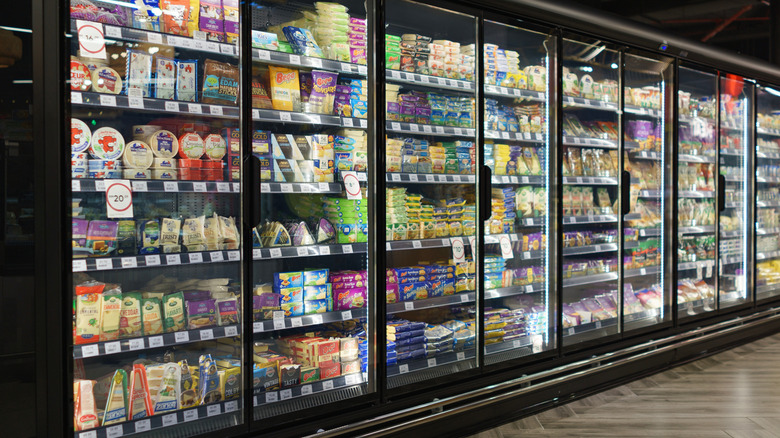One Major Dairy Recall Led To Multiple Hospitalizations And 2 Deaths
In early 2024, Hawaii's Health and State Department took a sample of cotija cheese manufactured by Rizo Lopez Foods, a California-based manufacturer. The company's product tested positive for Listeria monocytogenes, which is the bacteria that causes listeriosis. Listeriosis can range from mild to severe, causing symptoms including gastrointestinal distress, muscle aches, fever, and even death. This was just the tip of the iceberg and led to a federal investigation into Rizo Lopez's manufacturing facilities, which found — you guessed it — the same strain of listeria.
By February of 2024, Rizo Lopez had recalled its entire dairy catalogue, which was about 120 products. But by then, the damage was done because this listeria outbreak actually lasted a decade. From 2013 to 2024, the same strain of listeria found in Rizo Lopez's facility was identified as being linked to two deaths, a pregnancy loss, and 23 hospitalizations. This decades-long cheese recall that affected millions was so bad that by October of 2024, the Department of Justice filed an injunction to halt Rizo Lopez's operations. It was later found that the containers used to store finished products before packaging were infected with listeria, meaning that they might otherwise have been fine to eat before that point.
This is how a decade-long outbreak happens
Listeria is responsible for some of the deadliest food recalls to sweep the U.S. Regardless of the reason foods are commonly recalled, we tend to think of those events in terms of a few weeks, not a few years — we move on. So how could a listeria outbreak last a decade?
Foodborne illnesses are actually hard to track, in part because people who are ill often never even seek treatment. A huge part of tracing outbreaks is interviews of those infected, which involves recalling what they ate. It can be exceptionally difficult to remember what you have eaten even a few days ago, never mind months. People infected by listeria couldn't recall if they ate cheese from one of the 13 brands supplied by Rizo Lopez Foods.
It has also historically been challenging to know if outbreaks are related or not. It has taken years of research and DNA testing to really learn when strains of viruses and bacteria are related or identical. Furthermore, information that the federal government receives from state authorities is shared voluntarily, which makes outbreaks even harder to track. Whether we like it or not, foodborne illness will always be part of our food supply chain, but hopefully we'll continue to advance technologies and systems that can detect and stop outbreaks quickly and effectively.

